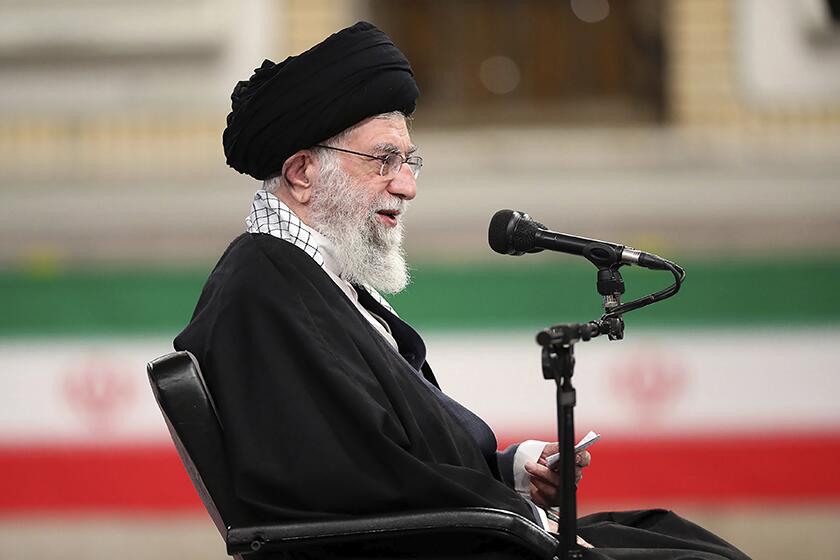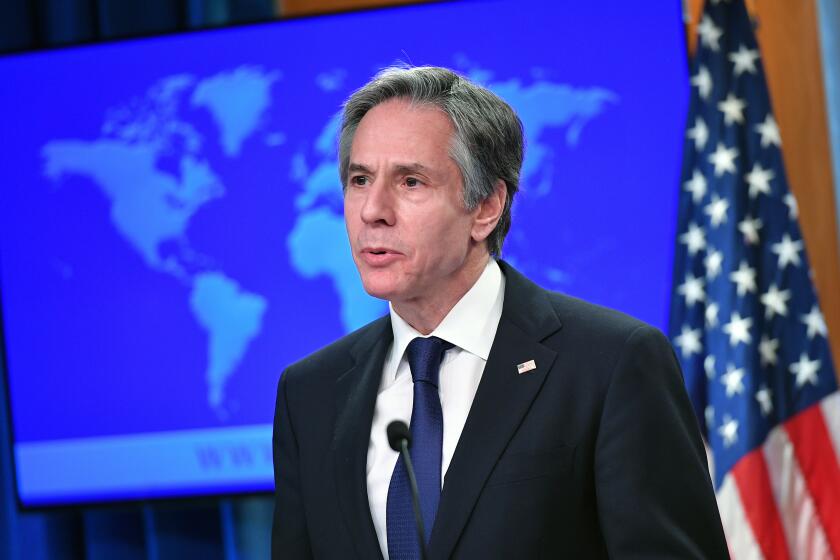In pursuit of oil and Mideast security, Biden to meet with Saudis he once regarded as pariahs
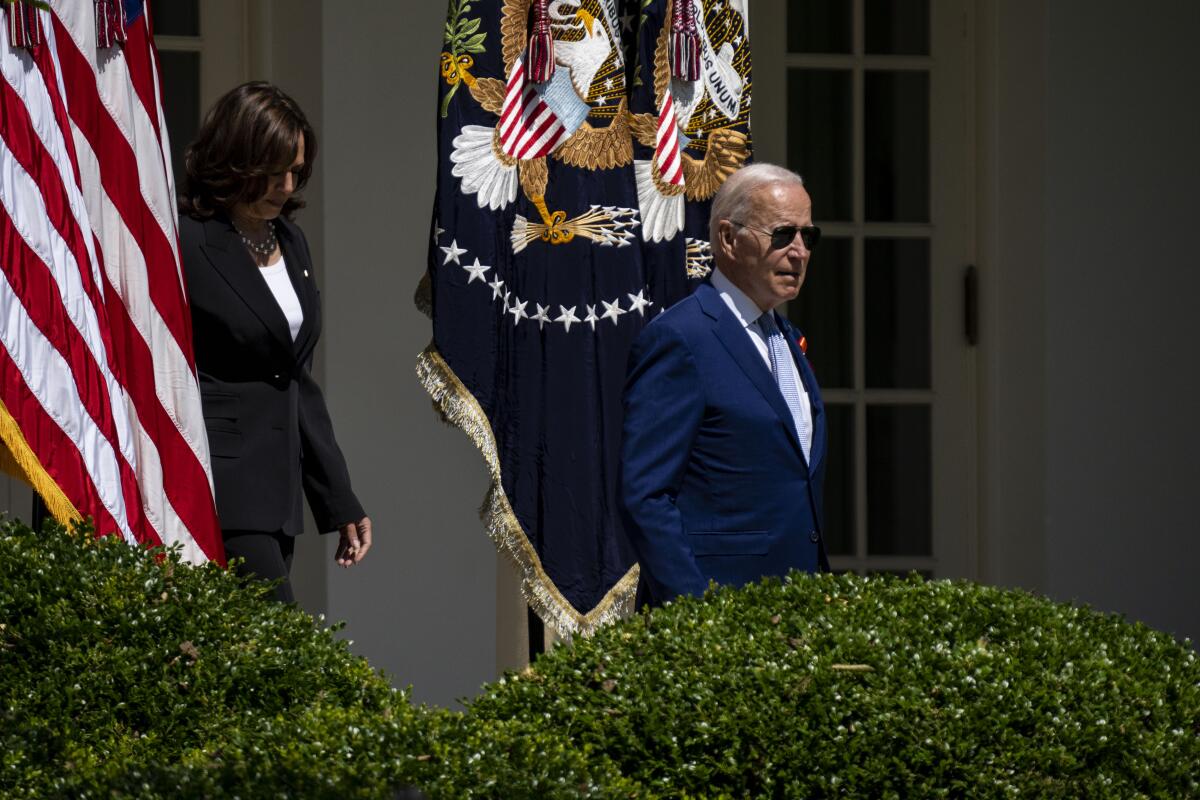
- Share via
WASHINGTON — Nothing about President Biden’s visit this week to the Middle East is going to be easy.
The president will first arrive in Israel, a key U.S. ally in the region. Except the country’s government is in turmoil — its parliament has been dissolved, setting up the fifth national election in three years. He will also visit with Palestinians, who remain relegated to the margins of U.S. foreign policy.
After two days in Israel, the president will fly to Saudi Arabia to sit alongside rulers whom he has criticized for having poor human rights records.
It’s among the most complex and controversial trips by Biden during his presidency. It will also be his first as president to the strategic and volatile region. Why is Biden going? What does he hope to accomplish?
Here is what you need to know:
The Biden administration took its first step towards returning to the Iran nuclear deal by offering to join talks with Tehran and European sponsors of the agreement.
Oil will be on top of agenda
Biden’s willingness to suspend his condemnation of Saudi leaders and mend ties has been widely seen as a product of his need to confront soaring energy prices at home. Those high fuel prices — a gallon of gas, on average, cost just under $4.70 a gallon this week — have contributed to record-high inflation. Concerns about inflation and the economy are on the top of minds of voters heading into November’s midterm elections, which forecasts suggest will be devastating for Democrats.
If Biden can somehow persuade Saudi Arabia, the world’s largest producer of oil, to open up the taps and add millions of barrels of crude to the market, it might help bring down prices globally and provide alternatives to Russian oil for markets like Europe.
“It’s the triumph of pragmatism over principle for the president,” said David Schenker, the top State Department official for the Middle East in the Trump administration. “He’s looking at getting shellacked in November with high oil prices, recession looming. So it’s an imperative for him to be seen as making an effort to bring more supply on the market.”
Every administration faces “a tension between balancing our interest and our values,” Schenker, a senior fellow now at the Washington Institute for Near East Policy, said in an interview.
A newly released U.S. report concludes that the Saudi crown prince directed the operation to kill the Washington Post journalist.
Tension over human rights
Biden, U.S. diplomats, lawmakers and human rights advocates have been particularly censorious of Saudi Arabia over its role in the 2018 murder of the U.S.-based Saudi journalist Jamal Khashoggi, who was slain inside the Saudi consulate in Istanbul.
U.S. intelligence agencies have concluded that Crown Prince Mohammed bin Salman, the de factor ruler of the Saudi kingdom, ordered an operation “to capture or kill” Khashoggi.
In a 2019 campaign event, Biden said his administration would make those responsible for the slaying “pay the price, and make them, in fact, the pariah that they are.” Until now, Biden has only dealt with the aging King Salman and only by telephone,
Mohammed is also behind some of Saudi Arabia’s most controversial, autocratic policies, including the prosecution of a brutal war in Yemen that has led to the bombings and starvation of tens of thousands of civilians; alleged kidnap and torture of the prime minister of Lebanon to make him toe the Saudi line; the imprisonment of thousands of dissidents, including religious minorities and women activists.
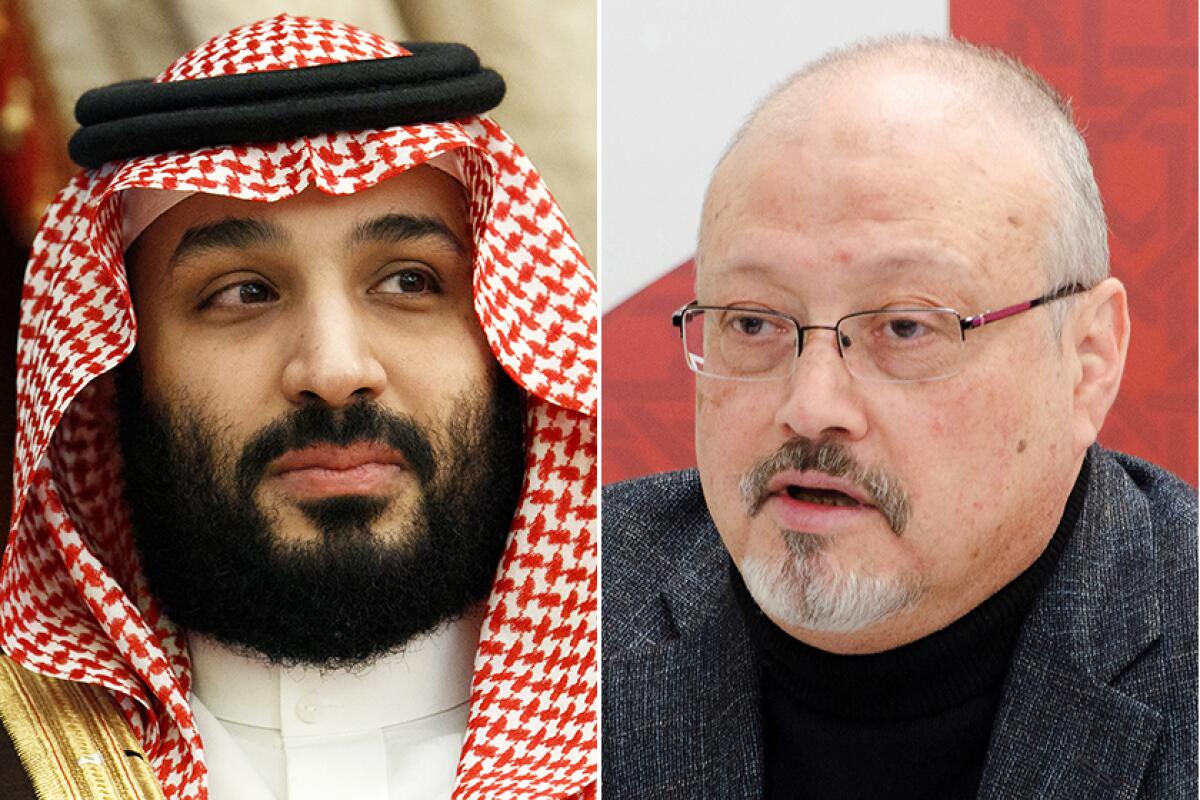
Biden’s decision to meet with Mohammed during the Saudi leg of his trip has drawn protests from members of Congress from both political parties, journalist associations, human rights advocates and Saudi dissidents. A group of Democratic senators wrote Biden, warning that Mohammed was “unchastened and continuing his ruthless campaign” against dissent.
Many of the critics gathered outside the Saudi Embassy in Washington one day last month and, with the blessing of the District of Columbia government, officially renamed the street where the embassy sits to Jamal Khashoggi Way. The new embassy address is 601 Jamal Khashoggi Way NW.
The Biden trip “sends a very bad signal around the world,” said one of the protesters, Omid Memarian, who works with a pro-democracy organization focusing on the Arab world that Khashoggi founded a few months before his death. And if it’s about oil, Memarian said, “the U.S. government is getting a temporary fix and paying for it with its moral authority.”
With the annual global human rights report, the Biden administration criticizes how Trump officials limited the defense of LGBTQ and women’s rights.
The Biden White House and State Department under Secretary of State Antony J. Blinken insist that human rights are always at the heart of U.S. foreign policy and are routinely raised in meetings with other world leaders.
“It’s not the totality of our foreign policy, it’s a critical element of our foreign policy,” Blinken said in an interview last month. “In the case of Saudi Arabia ... we have a multiplicity of interests at stake, we have a multiplicity of values at stake.”
The relationship is being “recalibrated,” he said, to reflect both.
Blinken said the U.S. has sought accountability for the Khashoggi murder and other abuses by imposing visa restrictions on dozens of Saudis and enacted a ban — named for the slain journalist — that prohibits foreign nationals who engaged in “serious, extraterritorial counter-dissident activities” on behalf of a government from entering the U.S. Still, neither Mohammed nor any senior Saudi official has been punished or even acknowledged responsibility for the crime.
Senior administration officials have for weeks been laying the groundwork for defense of detente with Riyadh. They credit Saudi Arabia with helping to broker a ceasefire in Yemen and with significant counterterrorism activities in the region. Mohammed has been credited with limited reforms, including allowing women to drive, in what has been one of the most repressive societies in the world.
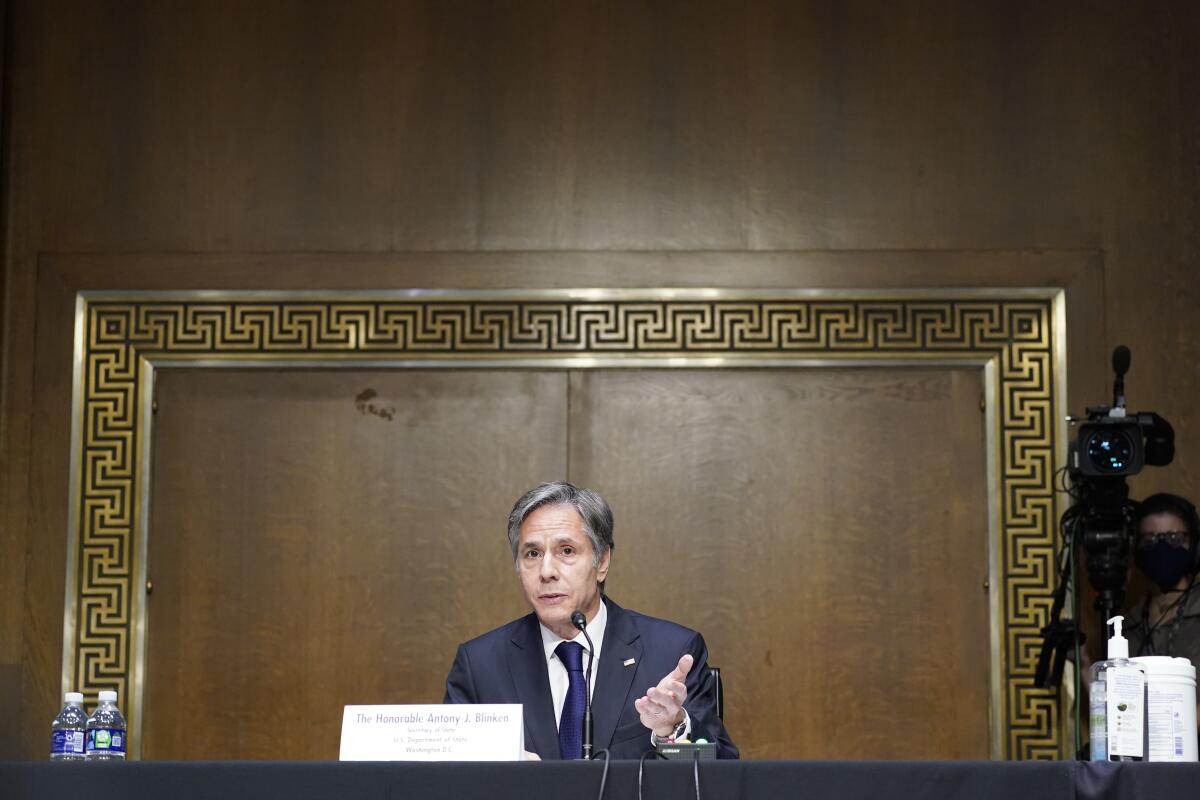
Other objectives in play
The Biden administration says the overtures to Saudi Arabia are about more than gas prices at home.
For one thing, it is unlikely that increased oil production from Saudi Arabia would have a major impact on prices at the pump in the United States.
To ramp up to the additional 2 million barrels a day, as Washington has proposed, Saudi Arabia would have to violate a standing agreement with other OPEC nations that limits the increase of production. Plus, the Saudi capacity for additional production and processing is limited, said Karen E. Young, founding director of the economics and energy program at the Middle East Institute in Washington.
“Will 2 million barrels a day change the price for Americans? No,” she said in an interview. “It would help the market in general but not in the U.S.”
One potential benefit, from the U.S. perspective, is that a lowering of global market prices would hurt Russia’s revenues from its own oil exports, money used to finance its war in Ukraine.
“Saudi Arabia may be the most impactful actor in global oil production, but that needs to be put into context,” said Norman Roule, a former senior U.S. intelligence officer specializing in the Middle East. “For example, if the kingdom increased production overnight, where would we refine the oil to produce more gasoline?”
The U.S. has numerous strategic interests to pursue with Saudi Arabia and other governments in the region beyond energy, Roule and other current and former U.S. officials said. These include ensuring the unimpeded flow of trade through the Red Sea and potential checkpoints, such as the straits of Hormuz and Mandab; cooperating on space exploration and nuclear development; confronting food insecurity.
Iran will be at center of talks
Iran will also be a major agenda item during both of Biden’s stops.
Both Israel and Saudi Arabia, which formally do not have diplomatic ties but privately share overt animosity toward Iran, oppose U.S. efforts to resurrect the Iran nuclear deal, a 2015 landmark international agreement that curtailed Tehran’s ability to produce nuclear power. Former President Trump pulled out of the deal in 2018, prompting Iran to resume significant processing of uranium, the material that could eventually be used to build a nuclear bomb.
Israel and Saudi Arabia will use their meetings with Biden to lobby him to give up efforts to revive the deal. A year of talks with Iran, led by other signatories to the agreement including the European Union, China and Russia, have so far failed to reach conclusion.
In the Saudi Red Sea port of Jeddah, Biden will also attend a meeting of the so-called GCC-plus-three, an ad hoc coalition of the Gulf Cooperation Council (Saudi Arabia, Qatar, Kuwait, the United Arab Emirates, Bahrain and Oman) along with Egypt, Jordan and Iraq. Many — though not all — in the group also have adversarial relations with Iran and want to see it isolated.
“Iran is going to loom very large over this visit,” said Khalid Elgindy, head of the Israeli-Palestinian affairs program at the Middle East Institute. Bolstering a united front against Iran also allows Biden to work toward better integration of Israel into the security architecture of the region, where until recently most countries did not recognize Israel’s existence, he added.
More to Read
Sign up for Essential California
The most important California stories and recommendations in your inbox every morning.
You may occasionally receive promotional content from the Los Angeles Times.
